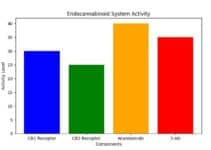In addition to discussing the science and potential risks, it's also important to provide practical tips for using delta THC for appetite stimulation, appetite enhancement, or hunger stimulation. This can include recommendations on different consumption methods, timing of use, and suggested strains or products that may be effective.
It's worth noting that while Delta 9 THC may be effective for boosting appetite in some individuals, it may not work the same for everyone.
Factors such as individual biology, tolerance, and underlying medical conditions can all play a role in how Delta 9 THC affects appetite. When writing about boosting appetite with Delta 9 THC, it's important to explore the various options for appetite stimulation, such as cannabis, marijuana, or weed, which are known for their potential in appetite enhancement and hunger stimulation.
Click here to learn more about: ‘ bloomz hemp store review
How does Delta THC stimulate hunger
When it comes to appetite stimulation, delta THC, also known as delta-9-tetrahydrocannabinol, works by interacting with the endocannabinoid system in our bodies to increase appetite. This intricate system plays a crucial role in regulating various physiological processes, including our appetite.
Delta THC binds to the cannabinoid receptors found in both the brain and gastrointestinal tract, setting off a series of effects that ultimately lead to an increase in hunger.
Alongside this mechanism, delta THC also influences the release of hormones and neurotransmitters related to hunger and satiety signals, such as ghrelin, leptin, and dopamine.
This delicate balance of chemicals can alter our perception of hunger, making food more enticing and appealing
Can Delta THC enhance appetite
While scientific research on the specific effects of delta THC on appetite enhancement may be limited, anecdotal evidence suggests that it can indeed boost appetite. One possible mechanism for this appetite-inducing effect is through delta THC's interaction with the endocannabinoid system (ECS) in the body.
The ECS plays a vital role in regulating physiological processes, including appetite and metabolism.
When delta THC binds to cannabinoid receptors in the ECS, it can stimulate the release of hormones and neurotransmitters that promote hunger, resulting in appetite-stimulating effects.
Delta THC has been found to affect the brain's reward system, which could potentially contribute to increased appetite. By enhancing the pleasure and enjoyment associated with eating, delta THC
Delta THC's Appetite-Inducing Effect
- Delta THC's interaction with the endocannabinoid system (ECS) in the body can stimulate the release of hormones and neurotransmitters that promote hunger.
- The ECS plays a vital role in regulating physiological processes, including appetite and metabolism.
- Anecdotal evidence suggests that delta THC can boost appetite.
- Delta THC's effect on the brain's reward system can potentially contribute to increased appetite by enhancing the pleasure and enjoyment associated with eating.
What are the appetitestimulating effects of cannabis
One fascinating aspect of cannabis-induced appetite stimulation is its potential as a hunger stimulant, effectively increasing desire to eat and enhancing appetite-boosting properties. Research studies have demonstrated that Delta THC can effectively increase one's appetite and stimulate the desire to eat.
This boost in appetite can be particularly beneficial for individuals who struggle with conditions that cause a loss of appetite or difficulty eating.
THC has been found to possess appetite-boosting properties, as it activates specific receptors in the brain responsible for regulating hunger, leading to an increase in food intake.
It is important to note that individual responses to cannabis-induced appetite stimulation may vary, and unwanted side effects may occur
How does THC boost hunger
When exploring how Delta THC enhances appetite, it is important to consider its hunger-inducing properties. Research has demonstrated that THC directly impacts the body's endocannabinoid system, which is responsible for regulating appetite.
Through binding to cannabinoid receptors in the brain and activating them, THC can stimulate the release of neurotransmitters such as dopamine and ghrelin, both known for their appetite-stimulating effects.
THC has been found to heighten the sensitivity of taste and smell receptors, making food more appealing and enjoyable.
It is worth noting, however, that the impact of THC on hunger can vary from person to person, with some individuals experiencing a notable increase in appetite while others may not
Delta THC and Appetite Enhancement
- Delta THC directly impacts the body's endocannabinoid system, which regulates appetite.
- Research has shown that THC binds to cannabinoid receptors in the brain and activates them, stimulating the release of dopamine and ghrelin.
- Dopamine and ghrelin are neurotransmitters known for their appetite-stimulating effects.
- THC can heighten the sensitivity of taste and smell receptors, making food more appealing and enjoyable.
Why is Delta THC used to increase appetite
Delta THC is widely used to increase appetite and enhance cravings for food due to its unique ability to interact with the body's endocannabinoid system. This compound, which is found in cannabis, targets the cannabinoid receptors in the brain and activates them.
This activation leads to a noticeable increase in cravings for food and a desire to eat.
Delta THC has been shown to enhance the release of the hormone ghrelin, also known as the hunger hormone. This hormone further stimulates appetite and promotes increased food intake.
In addition to directly stimulating cravings, Delta THC can also alleviate symptoms such as nausea and vomiting, making food more appealing and improving overall appetite
Does Delta THC increase food intake
Studies have shown that Delta THC, a variant of tetrahydrocannabinol (THC), may have the potential to increase desire for meals and stimulate the desire for food. This potential is attributed to Delta THC's interaction with the body's endocannabinoid system, which regulates appetite.
It is believed that Delta THC activates cannabinoid receptors in the brain, leading to an increase in appetite and a desire to eat.
Delta THC has been shown to enhance the release of ghrelin, also known as the hunger hormone, further promoting food intake.
Although the effects of Delta THC on appetite may vary among individuals, it is evident that it has the potential to increase food intake and stimulate cravings for food
Delta THC's Effects on Appetite
- Delta THC, a variant of THC, has been studied and shown to potentially increase desire for meals.
- Research suggests that Delta THC interacts with the body's endocannabinoid system, which regulates appetite.
- Activation of cannabinoid receptors in the brain by Delta THC may lead to an increase in appetite and a desire to eat.
- Delta THC has been found to enhance the release of ghrelin, also known as the hunger hormone, further promoting food intake.
Can THC induce cravings for food
When it comes to the question of whether THC can induce desire for meals, the focus shifts to understanding the role of Delta THC for meal cravings. Delta THC, which is known for its potent psychoactive properties, is believed to have a stronger impact on stimulating cravings for food compared to other forms of THC.
This unique variant of THC acts on the endocannabinoid system, which regulates appetite and metabolism.
By exploring the effects of Delta THC on this system, we can gain valuable insights into how it influences appetite stimulation with delta THC.
It is important to note that excessive consumption of Delta THC may have potential risks or side effects. By considering these factors, readers can make informed decisions about the use of THC for increased food intake and appetite stimulation with delta THC, ultimately enabling them to enhance their appetite and boost their desire for meals.
What are the appetiteboosting properties of marijuana
Marijuana's appetite-boosting properties are not solely attributed to Delta-9-tetrahydrocannabinol (THC), but also to the ability of THC to enhance the desire to eat. While THC is recognized for its ability to stimulate hunger and enhance the pleasure of eating by binding to cannabinoid receptors in the brain, other compounds present in marijuana can also induce appetite.
One such compound is cannabidiol (CBD), which has been found to interact with serotonin receptors in the brain, potentially promoting an increase in appetite.
Terpenes, the aromatic oils found in marijuana, can activate taste and smell receptors, thereby further enhancing the desire to eat. It is the combined effects of these various compounds in marijuana, particularly THC, that contribute to its overall appetite-boosting effects.
| Marijuana's Appetite-Boosting Properties | Other Factors |
|---|---|
| Delta-9-tetrahydrocannabinol (THC) stimulates hunger and enhances the pleasure of eating by binding to cannabinoid receptors in the brain. | THC is recognized for its ability to stimulate hunger and enhance the pleasure of eating by binding to cannabinoid receptors in the brain. |
| Cannabidiol (CBD) interacts with serotonin receptors in the brain, potentially promoting an increase in appetite. | Other compounds present in marijuana, such as CBD, have been found to interact with serotonin receptors in the brain, potentially promoting an increase in appetite. |
| Terpenes found in marijuana activate taste and smell receptors, further enhancing the desire to eat. | Terpenes, the aromatic oils found in marijuana, can activate taste and smell receptors, thereby further enhancing the desire to eat. |
The Power of Delta 9 THC Relief from Nausea
Delta 9 THC The Ultimate Relief for Insomnia





